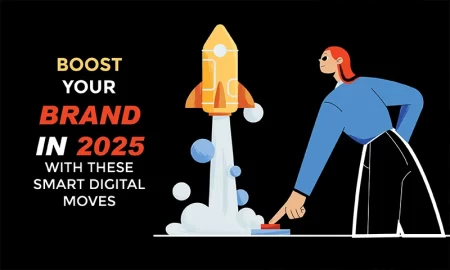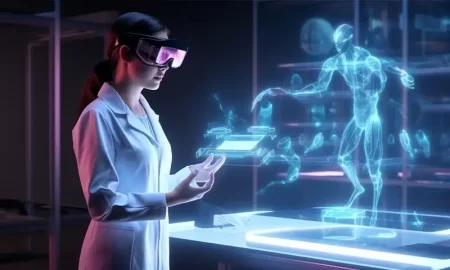Healthcare Disrupted: Embracing Tech for Better Patient Care
The landscape of healthcare is rapidly evolving, ushering in an era where technology plays a pivotal role in enhancing patient care. From streamlining administrative tasks to revolutionizing treatment approaches, the integration of technology is reshaping the healthcare industry as we know it. Embracing these advancements isn’t just about staying up-to-date; it’s about significantly improving patient outcomes and experiences.
The Impact of Technology on Healthcare
Technological innovations have penetrated every aspect of healthcare delivery. Telemedicine, for instance, has bridged the gap between patients and healthcare providers, enabling remote consultations, monitoring, and follow-ups. This has been especially crucial in providing healthcare access to those in remote or underserved areas.
Enhancing Efficiency and Accuracy
Electronic Health Records (EHR) systems have streamlined patient data management, replacing cumbersome paper-based systems. This digitization has not only enhanced the efficiency of healthcare delivery but also minimized errors, ensuring accurate and accessible patient information across various medical facilities.
Innovations in Treatment and Diagnostics
Breakthroughs in medical imaging technology have revolutionized diagnostics, enabling earlier detection of conditions and more precise treatment planning. Advancements like AI-powered diagnostic tools and wearable devices are empowering both patients and healthcare professionals with real-time health monitoring and early intervention possibilities.
Improving Patient Engagement and Education
Technology has empowered patients to take charge of their health through healthcare apps, wearable devices, and online resources. These tools provide valuable insights into personal health metrics, encourage healthier lifestyles, and offer educational resources, fostering a more informed and engaged patient community.
Overcoming Challenges and Adoption Barriers
Despite the immense benefits, the integration of technology in healthcare comes with its challenges. Issues such as data security, interoperability between different systems, and the digital divide among certain populations need to be addressed for widespread adoption and seamless functionality.
Data Security and Privacy Concerns
The digitization of healthcare data raises concerns about privacy and data breaches. Implementing robust security measures and stringent regulations is imperative to safeguard sensitive patient information from cyber threats.
Ensuring Interoperability
The lack of interoperability between various systems and platforms often hinders the seamless exchange of patient data among healthcare providers. Standardizing protocols and improving compatibility is crucial for enhancing collaboration and improving patient care continuity.
Bridging the Digital Divide
Not all demographics have equal access to technology, creating a digital divide that affects healthcare access. Addressing this gap requires initiatives to provide technology access and education to underserved communities, ensuring equitable healthcare opportunities for all.
The Future: Embracing Tech for Optimal Patient Care
As technology continues to evolve, the future of healthcare holds immense promise. Embracing these advancements presents an opportunity to redefine patient care by harnessing the full potential of technological innovations.
Embracing Technological Innovations for Improved Healthcare Delivery
Harnessing Artificial Intelligence in Healthcare
Artificial Intelligence (AI) stands as a game-changer in healthcare, offering predictive analytics, personalized medicine, and efficient clinical decision-making. Machine learning algorithms analyze vast datasets to predict disease patterns, optimize treatment plans, and even assist in drug discovery.
Robotics and Automation in Healthcare Operations
Robotic-assisted surgeries and automated systems streamline procedures, reducing human error and enhancing precision in complex surgeries. Additionally, robotic process automation (RPA) aids in administrative tasks, freeing up healthcare professionals’ time to focus more on patient care.
Collaborative Care through Connectivity
Telehealth: The Future of Patient Consultations
Telehealth services have expanded beyond video consultations to include remote monitoring and virtual care platforms. These advancements not only offer convenience but also allow for continuous care, leading to better management of chronic conditions and post-operative care.
Interconnected Healthcare Ecosystems
The integration of various healthcare systems and devices fosters a more interconnected ecosystem, facilitating seamless data exchange among hospitals, clinics, pharmacies, and laboratories. This connectivity ensures a holistic view of a patient’s health, leading to more informed decisions and personalized care plans.
Addressing Challenges for a Seamless Transition
Regulatory Compliance and Standards
Regulatory frameworks and industry standards must keep pace with technological advancements to ensure compliance and ethical use of emerging technologies in healthcare. Collaboration between policymakers, healthcare providers, and technology developers is essential to create guidelines that balance innovation and patient safety.
Overcoming Resistance to Change
Resistance to adopting new technologies within healthcare organizations poses a challenge. Efforts to educate and train healthcare professionals about the benefits and proper utilization of these technologies are critical for successful integration.
The Way Forward: Uniting Technology and Compassionate Care
Fostering a Culture of Innovation and Adaptability
To truly harness the potential of technology in healthcare, fostering a culture that embraces innovation and continuous improvement is crucial. Encouraging experimentation with new technologies and learning from both successes and setbacks will drive the industry forward.
Patient-Centric Approach in Tech Integration
Above all, every technological implementation must prioritize the patient experience. The focus should remain on enhancing patient outcomes, empowering individuals in managing their health, and ensuring that technology complements and amplifies the human touch in healthcare.
Conclusion: Paving the Path for a Tech-Enabled Healthcare Future
In conclusion, the fusion of healthcare and technology represents a watershed moment in the industry’s evolution. By embracing technological innovations, overcoming barriers, and prioritizing patient-centered care, the healthcare landscape stands on the brink of a transformative era.
This journey is not without its challenges, but the potential benefits—enhanced patient care, streamlined operations, and improved health outcomes—are undeniable. The future of healthcare lies in the harmonious integration of technology and compassionate care, ensuring a healthier and more connected world for all.












